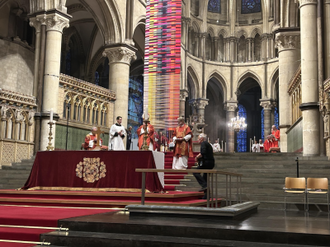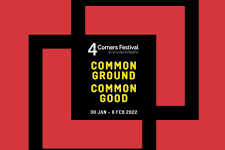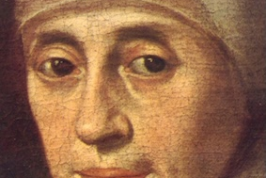Papal Nuncio celebrates historic Catholic Mass in Canterbury Cathedral

Image: ICN/JS
Source: CBCEW, ICN
The Apostolic Nuncio, Archbishop Miguel Maury Buendía, Pope Leo's representative to the Church in the UK, celebrated an historic Catholic Mass in Canterbury Cathedral on Monday, commemorating the Translation of St Thomas of Canterbury.
The packed congregation included many church and state dignitaries, among them the Lord Mayor of Canterbury, Keji Moses, Dr Caroline Hull, director of Aid to the Church in Need, members of the Ordinariate and Opus Dei.
Joining the spectacular procession at the start of the Mass was the auxiliary Bishop of Southwark, Rt Rev Paul Hendricks, Knights and Dames from the Papal Order of St Gregory the Great, the Order of the Holy Sepulchre of Jerusalem, Order of Saint Sylvester, Knights of Malta and 50 priests. The Vatican Cricket team (priests and seminarians in their bright yellow jackets) also attended. Music for the Mass was directed by Nigel Short and Tenebrae, the internationally acclaimed English choir.
St Thomas Becket, was Archbishop of Canterbury from 1162 until his murder in 1170. He was killed by followers of King Henry II after he refused to agree to allow the King to have authority over the Church. He was canonised by Pope Alexander III soon after his death.
Fifty years after his martyrdom, the remains of St Thomas Becket were removed from his tomb in the Canterbury Cathedral crypt and transferred ( 'translated') to a bejewelled golden casket in a purpose-built chapel, behind the high altar. The event was attended by dignitaries including the teenage King Henry III. The translation was established and presided over by Archbishop Stephen Langton The anniversary of the 'translation' of Becket's bones to his shrine, was the most important and well-attended pilgrimage feast in England for many centuries. More than 5,000 pilgrims made the pilgrimage each week. These journeys were immortalised in the Canterbury Tales by Chaucer.
At the Reformation in 1538, the Shrine was demolished on the orders of Henry VIII and the Cathedral became Anglican.
The first Catholic Mass to be celebrated at Canterbury Cathedral after the Reformation took place on St Thomas Becket's feast day, 29 December 1980 at the site of his shrine. The late Canon Jeremiah Cronin, parish priest of St Thomas of Canterbury's church from 1979 - 1991 was the celebrant.
Many Catholic Masses have been held here since, but Monday's Mass was a historic 'first' in that it was the first time a papal nuncio had celebrated Mass there. It is particularly significant as a papal legate was said to have been present when the saint's body was moved.
In his homily Archbishop Miguel Maury Buendía said:
"This Mass of pilgrimage takes place within the context of the Jubilee Year. It highlights the Christian life as a spiritual journey, moving through life's trials and joys with hope anchored in Christ. Having travelled as pilgrims today, we do more than just honour a figure from history. The stained glass windows all around us illustrate the many miracles attributed to St Thomas in the medieval period. This should be a living story, too. Our world, today as then, is in need of hope. We come in this Jubilee Year as 'Pilgrims of Hope' to be inspired by St Thomas' holiness and his courageous witness to Christ and His Church."
At the end of the Mass the Nuncio blessed the congregation with the relic of St Thomas Becket, He also read a papal greeting from Pope Leo XIV.
Full text of the homily of His Excellency Archbishop Miguel Maury Buendía, Apostolic Nuncio to Great Britain, given in Canterbury Cathedral on Monday, 7 July 2025.
Dear brothers and sisters, I am very pleased to be here with you this evening and to celebrate this Mass in honour of St Thomas of Canterbury. I would like to express my sincere gratitude to the Very Reverend Dr David Monteith, Dean, and to all the Chapter of the Cathedral, for their gracious hospitality and to those who have helped in organising this liturgy, especially Canon Anthony Charlton, Fr Giovanni Prandini and Elizabeth Forrester. Thanks also to the concelebrating priests, altar servers, and musicians - the Tenebrae Choir - for their participation in this evening. I also greet in particular the Lord Mayor of Canterbury, the Right Worshipful Keji Moses.
I would like to express in this emblematic place the Christian closeness of His Holiness Pope Leo XIV to our Anglican brothers and sisters, passing them the invitation to listen, together with us, to what the Holy Spirit is saying to the churches (cfr. Rev. 2:7). We are in the oldest Cathedral of the English-speaking world. It was Pope St Gregory the Great who sent St Augustine to England to convert the Anglo-Saxons. I invite you to pray now in a particular way for Pope Leo, who I represent in this land and who I met a few weeks ago in Rome, assuring you of his nearness and blessings.
This Mass of pilgrimage takes place within the context of the Jubilee Year. It highlights the Christian life as a spiritual journey, moving through life's trials and joys with hope anchored in Christ. Having travelled as pilgrims today, we do more than just honour a figure from history. The stained glass windows all around us illustrate the many miracles attributed to St Thomas in the medieval period. This should be a living story, too. Our world, today as then, is in need of hope. We come in this Jubilee Year as 'Pilgrims of Hope' to be inspired by St Thomas' holiness and his courageous witness to Christ and His Church. We join our prayers with those of so many who have gone before us down the centuries.
In the First Reading, St Paul proclaims that our hope of glory is the living presence of Christ in us. It is this personal relationship with Our Lord which enables us to rejoice even in the midst of trial and persecution. St. Paul's words in Colossians are a direct spiritual parallel to St. Thomas Becket's martyrdom. Like Paul, Becket rejoiced in the sufferings he endured-not for personal gain, but for the sake of the Body of Christ, particularly in defending the Church's freedom from secular interference. St Thomas embraced his cross with a self-emptying love: a model of the new teaching on authority that Jesus makes in the Gospel we have just heard. He made himself a servant, in order to bring others to a knowledge of Divine Love. St Thomas did not die for an ideology. His martyrdom was a witness to the relationship with Christ he nurtured in his episcopal ministry: a participation in Our Lord's Paschal mystery.
In his first Mass celebrated as the Roman Pontiff, our Holy Father Leo XIV addressed the College of Cardinals, quoting St Ignatius of Antioch to illustrate the deep spiritual connection between martyrdom and an authentically Christian exercise of authority. Pope Leo said:
"There is an indispensable commitment for all those in the Church who exercise a ministry of authority. It is to move aside so that Christ may remain, to make oneself small so that he may be known and glorified (cf. Jn 3:30), to spend oneself to the utmost so that all may have the opportunity to know and love him."[1]
This same commitment was the force of love behind the life and death of St Thomas of Canterbury. We pray to him as pilgrims in need of hope and healing, and we ask Our Blessed Mother, Queen of Martyrs, to intercede for us - that we might be faithful witnesses to Christ, growing each day in love of Him and each other. Amen.
[1] Pope Leo XIV, Homily at the Holy Mass Pro Ecclesia, Friday 9 May 2025.
For more official pictures from the day see: www.flickr.com/photos/catholicism/albums/72177720327415688/


















